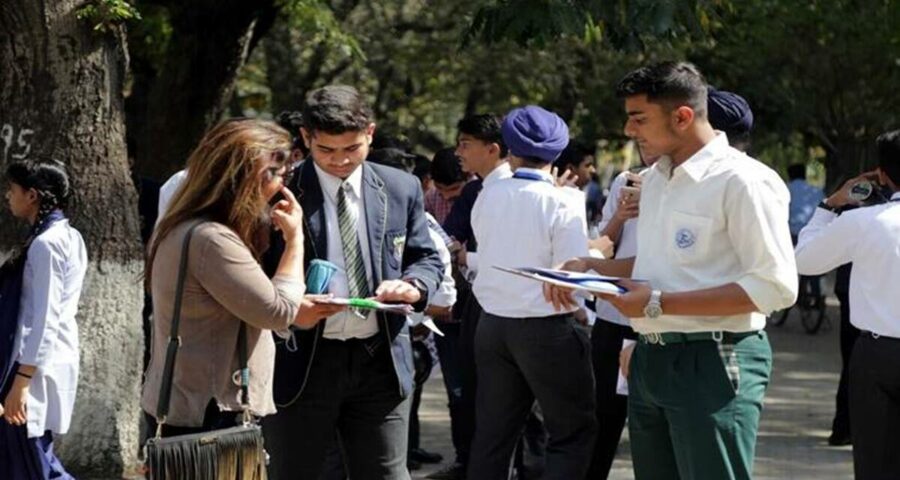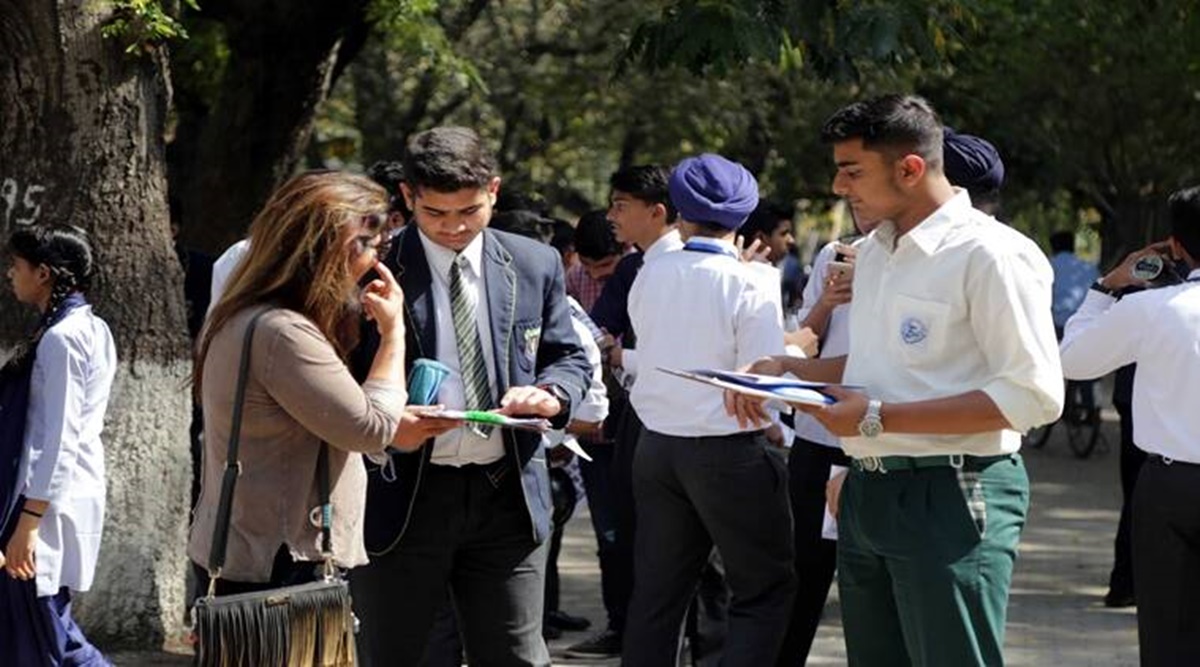Despite all the reservations against the policy pertaining to subjectivity and ambivalence, stakeholders are of the opinion that the alternative assessment policy is the best possible strategy in the current scenario.
The surge in coronavirus cases witnessed from March 2021 onwards mandated the cancellation of Class 10 board exams for the academic year 2020-21. The decision also necessitated the formulation of an alternative pan-India policy for the tabulation of results.
According to the alternate CBSE evaluation strategy, while 20 marks for each subject will be for internal assessment, 80 marks will be calculated based on students’ performance in various tests or exams throughout the year. The periodic tests or unit tests will have a weightage of 10 marks, half-yearly exams will have 30 marks and pre-board exams will have 40 marks, accounting for 80 marks.
While the strategy could be the best possible solution in the current scenario, it cannot be ruled out that it still is a big surprise for students and teachers. Many students whose families were struggling with coronavirus could not appear for the internal assessments, little did they know that all these marks will later be counted for preparing the final results. The primary concern shared by parents and educators is the fact that this policy leaves room for subjectivity and ambivalence.
“On account of not realising the strategic significance of these term-end or preparatory examinations, as the pre-boards are often considered, students may not have taken them as seriously, causing the outcome to be negatively impacted. Perhaps students would have prepared better knowing these would ultimately determine their overall result. How genuinely reflective of a child’s knowledge can we deem these marks, then? said Shilpika Dass, teacher and special projects incharge, Lotus Valley International School, Noida.
Randhir Kumar, chairman, Anand Prep Public School, Muzaffarpur, Bihar, feels that the importance of class 10 marks has been compromised and blames it on CBSE’s lack of planning.
“Students were not informed beforehand that all the assessments conducted throughout the year will be added to the final result. If the board had announced the same even by December as a preventive measure, a lot of concerns could have been addressed. Besides, states such as Bihar conducted their board exams when the situation was conducive in February-March, CBSE could have adopted a zone-wise strategy to conduct the offline exams, but it did not indulge in making a plan in advance,” Kumar added.
Schools have been instructed to ensure that the marks awarded align with the average of schools’ best performance in the past three years.
“While the condition has not been very conducive for conducting exams, nobody expected that the board exams will be cancelled. Our school’s history is of only one year. Last year, the result of Math and Science across schools was low. Our students will inevitably suffer because of the result of the previous batch,” said Poonam Kochitty, Principal, Seth Anandram Jaipuria School, Lucknow.
An eight-member committee, headed by the principal, would be responsible for finalising the results. The CBSE has further attempted to address the challenges of reliability by mandating that the result committee also comprise external examiners and deputing teams to verify the documents and the process of allocating marks uploaded to ensure the correctness of the same.
Veteran educationist Shayama Chona said that there is too much importance given to exams in our country. “While class 12 marks are important for college admissions, class 10 results are not the deciding factor in a student’s career. There should be no question of pass or fail and students should be anyway promoted amid the ongoing pandemic. Past results of the schools should not be taken into account and students should be ranked based on their performance in assessments conducted throughout the year. We must not over-complicate the policy, there should be attempts to simplify it for students and teachers.”
KC Srivastava, Regional Officer, Jharkhand Zone – C, DAV Public Schools, believes that this is the best that the board could do in the current circumstances. “The pandemic is affecting everyone, including the board, students and teachers and no one could have predicted the situation. We cannot do away with the concept of assessment for promoting students to the next class, hence, having an alternate was the only option left,” he said.
Hooria Wani, a class 10 student of Presentation Convent School, Jammu, said, “The criteria seems to be fair. We always got our final result based on internal assessment, assignments and the marks we got for the final exam, so the only difference is that the distribution of marks is changed and the marks we got on our last exams are given half the weightage in the final result.”
Despite all the reservations, stakeholders are of the opinion that the alternative assessment policy is the best possible strategy in the current scenario.
“The safety and security of the students and teachers far outweigh the inevitable limitations. In fact, as an educator, I find that this assessment strategy actually most effectively subscribes to the spirit of assessment of and for learning, since it is based on the principle of consistency rather than sporadicity, and application rather than regurgitation of knowledge,” Dass added.
Source: Read Full Article


